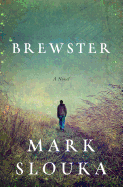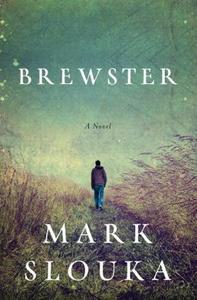

Replete with details of the music and anti-war freedom rhetoric of the era, Mark Slouka's Brewster epitomizes the coming-of-age novel. Jon's German-Jewish immigrant father owns the town's shoe store. After the childhood death of his older brother, his parents turn inward and leave the alienated Jon on his own to befriend Ray Cappicciano, the brawling son of an abusive alcoholic ex-cop; Frank Krapinski, a zealous Christian track teammate; and Karen Dorsey, a brainy beauty who chooses the pugnacious Ray over the introverted Jon. Together they navigate high school, smoke and drink beer, huddle in their bedrooms "listening to the Stones turned low, which doesn't work," and discuss Camus's The Stranger. ("This guy, Meursault, was... like a sack that's been filled up with certain things--just like all of us. When he couldn't take it anymore, he killed somebody.")
The tight foursome find strength in the shared challenges they face at home and their naïve dreams of escaping to a better future. However, just as Woodstock had its Altamont, the longed-for future of the four friends is darkened by a violent confrontation between Ray and his father that changes the fates of all of them.
Slouka (God's Fool; Lost Lake) has not only a true ear for the conversational ambivalence of the young in the tumultuous '60s of small-town America, but also a clear view of the fatalism such small-town life engenders. "You'll be OK," Jon's track coach counsels him when his dreams have come apart. Then "he looked down at his left hand like a woman looking at her manicure, thinking about how her marriage has died. 'That's the thing--[life] goes on. With or without you.'" Sometimes, Bob Dylan notwithstanding, Memphis is no better than Mobile. --Bruce Jacobs
Shelf Talker: Slouka perfectly captures the voices and frustrations of four young friends in a small town during "the winter after the summer of love."

